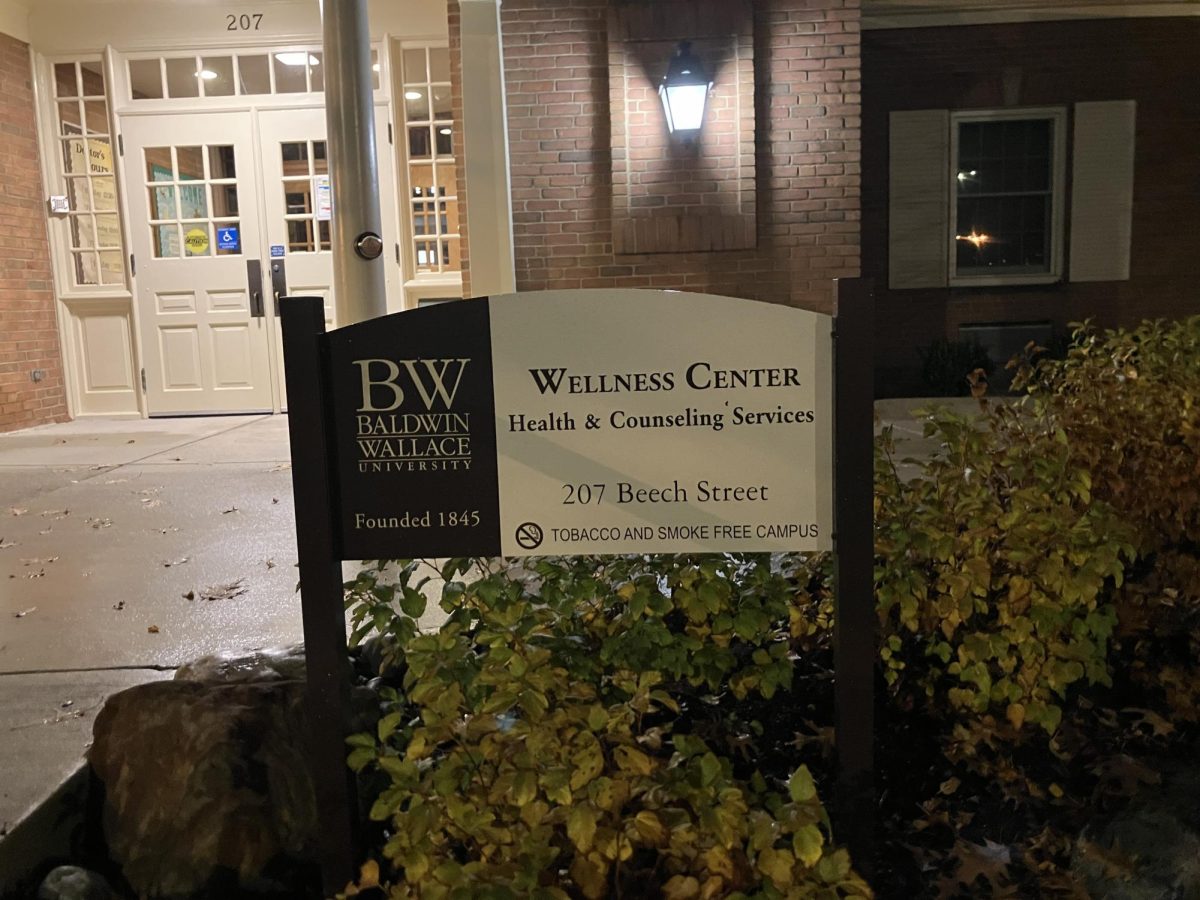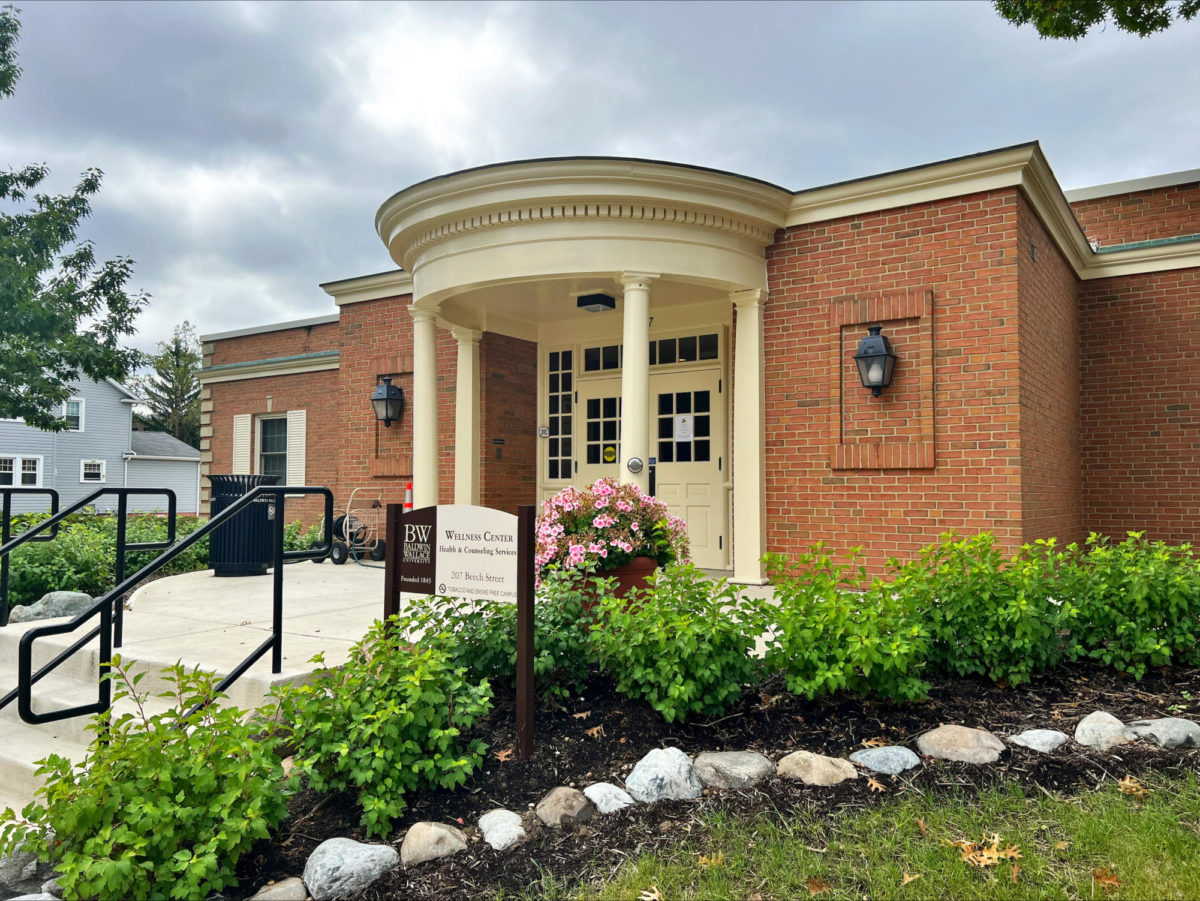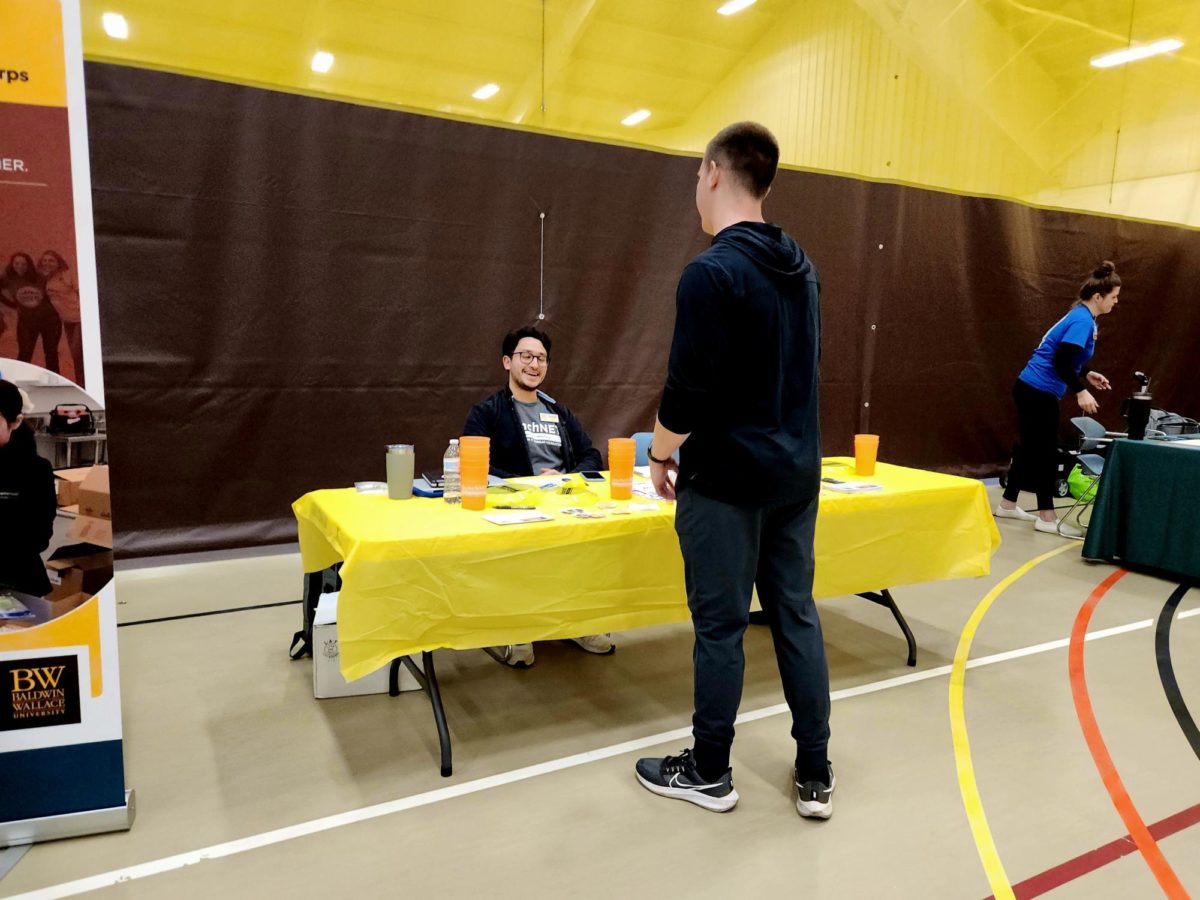Baldwin Wallace University updated its COVID-19 protocols in the spring semester of 2023 and reiterated it earlier this semester, leading some students frustrated and confused as to how students who have tested positive should navigate their campus life.
The previous protocols included COVID-19-positive housing at the Berea Townhouses and a food delivery service, along with daily check health check-ins via the recently unsupported Rave Guardian app. Under certain circumstances, the University also had positive testing students move back home for a certain amount of time, an option that is no longer open to students.
With the Berea Townhouses under renovation, this removes the extra housing for COVID-19-positive students, and there is also no longer a food delivery service for students to receive their meals while quarantined.
Emma Collins, a freshman BFA acting student, recently tested positive for COVID-19 and said that she was frustrated with her experience, specifically in terms of having difficulty receiving their meals.
“I had to ask my friends and stuff like, oh, like, can you give me lunch? I’ll pay you back and all that,” Emma Collins said.
One of the other challenges was paying someone back for her food. Since all first-year students did not receive physical ID cards, the friends could not just take the card and use her swipes. Emma Collins said that her friends had to use their own swipes, and now Emma Collins would have to pay her friends back.
Her roommate, Sallee Collins, a freshman BFA acting student, said that after she received the news that her friend tested positive, without the Berea Townhouses being available for her roommate to stay in quarantine, she had to ask her friends to stay on their couch.
Emma Collins said that she felt guilty placing this burden on her roommate.
Sallie Collins said the only thing she could think of that whole week was “why is there no contingency against this?”
Ethan Ward, a junior public history student, also recently tested positive for COVID-19. Ward lives in a single dormitory, so there was no worry about notifying a roommate, but there was the worry of food.
“I would sometimes just have to go to the Union,” Ward said. “I would try to dress as conservatively as possible. I wore coat gloves, mask all that, but I often tried to order a pizza just to avoid contact,” Ward said.
Morgan Showalter, a junior public history student, was in a similar circumstance to Ward in that she lived in a single room but said that she had the added benefit of living in Lang Hall.
“I kind of just isolated myself in my room and ate in my room most of the time. But when I did I just kind of went downstairs and got food,” Showalter said.
Emma Collins, Showalter and Ward said most professors were willing to work with their illness to allow them to learn even with COVID-19. Most could join the class via Zoom, or the teachers would send them a recording.
While some students have concerns surrounding the lifting of the policies, the Dean of Students, Léna Crain, said that the University is fully following the CDC guidance, which, has now classified COVID-19 as an endemic rather than its previously more severe qualification as a pandemic.
“Some of the former supports for students who tested positive for COVID-19 are no longer in place,” Crain said. “Under current CDC guidance, students who have tested positive for COVID-19 may retrieve take-out food from dining facilities provided they are wearing a mask.”
The University provides free COVID-19 tests in the Student Union and the Health Center, and they can be requested at www.covid.gov.

































